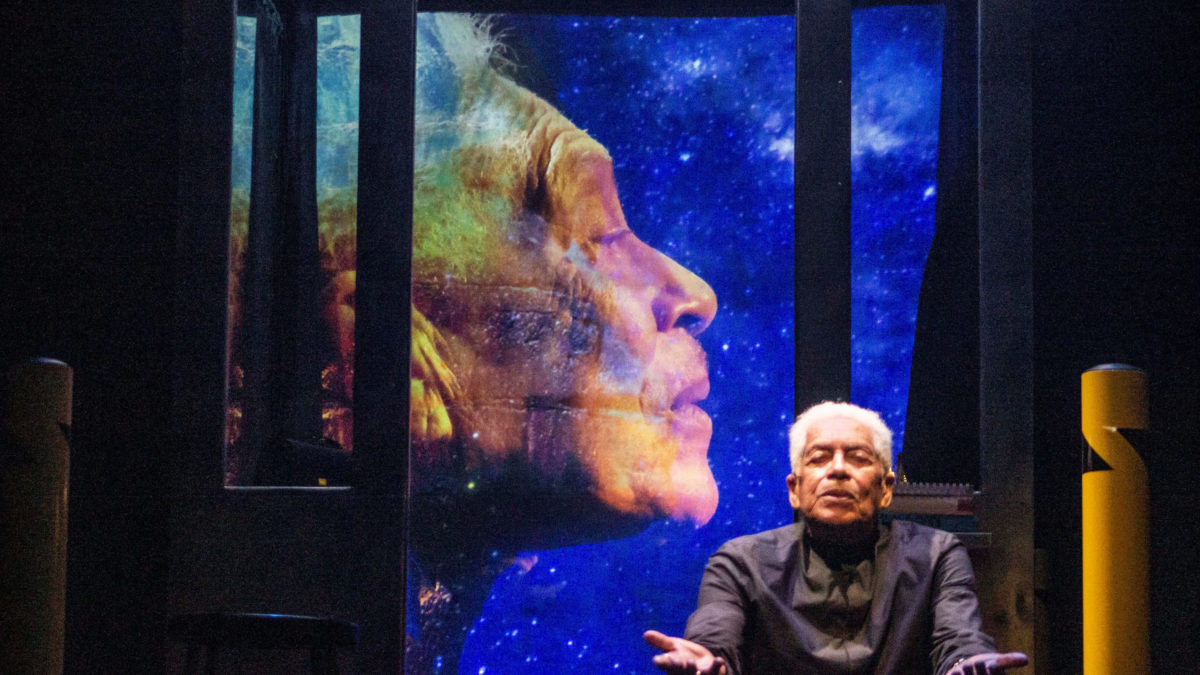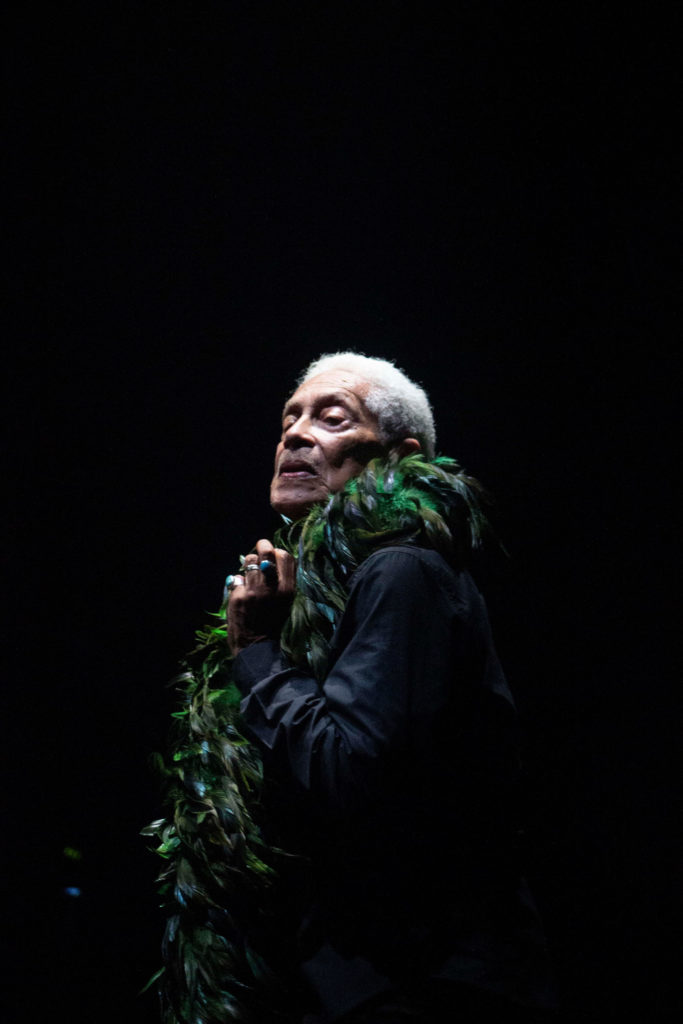
By Olivia Barret
Thursday 2 November 2023
Walter Borden’s The Last Epistle of Tightrope Time captivates audience at the NAC
As seven spotlights lit the stage, Walter Borden emerged, beginning his usual routine at a toll booth, without saying a word. His every movement captivated the eyes of a nearly full house at the National Arts Centre’s Azrieli Studio on November 2.
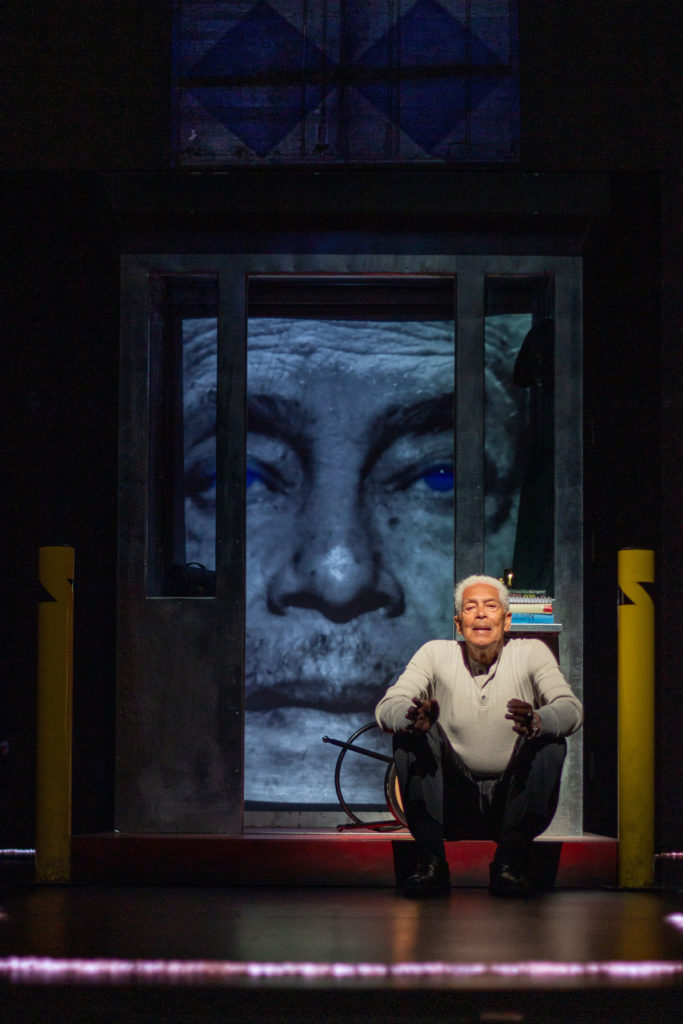
First performed in 1986 as Tightrope Time Ain’t Nuthin’ More Than Some Itty Bitty Madness Between Your Twilight & Your Dawn, this was one of the first plays to explore homosexuality from the perspective of a Black man. In his letter to the world, Borden takes on the persona of 10 compelling characters to reflect his philosophy on the journey of life. The latest rendition of Tightrope Time reimagines the original by incorporating over 35 years of experience and wisdom to further reflect on Borden’s philosophy of life.
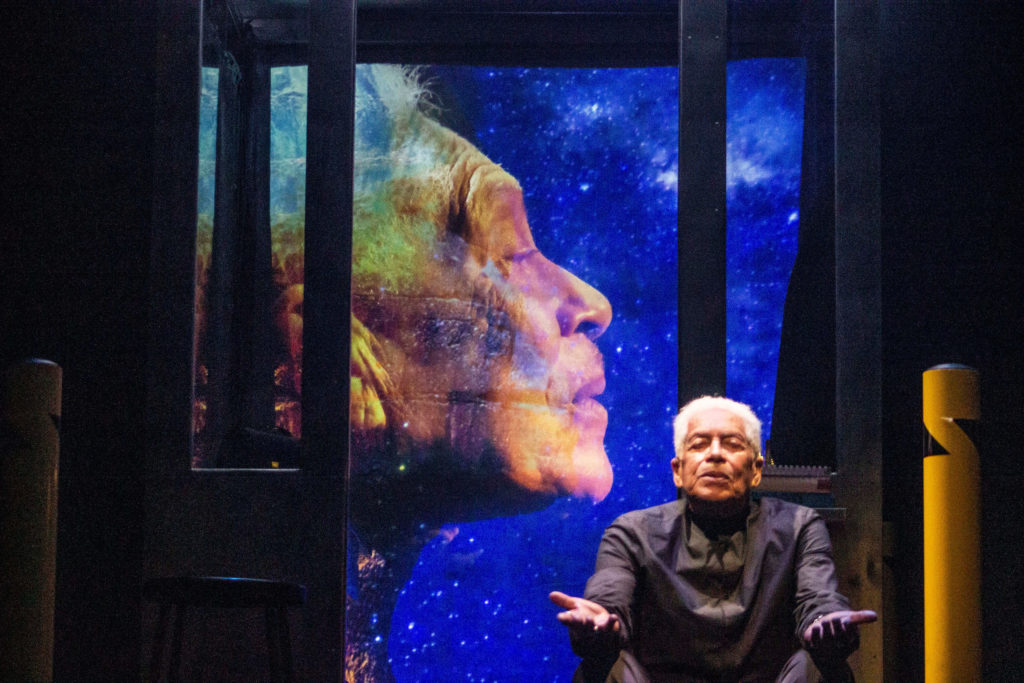
In addition to exploring the hardships of Black queer people, Borden’s poetry also tackled issues other members of the Black community face. The grief Black children deal with. The judgement and discrediting of Black women. The “don’t cry” mentality that plagues the emotional side of Black men. And for queer Black youth, the homophobia preached within the sacred walls of churches.
Throughout the play, four words guided the audience through Borden’s stories: Insurgency, Lamentation, Resiliency and Capitulation.
Resiliency was front and centre; both on the stage and in every character Borden portrayed. In each story, the character’s resilience looked different but equally as impactful as they discussed the struggles of different groups within the diaspora.
The reimagined version of Tightrope Time connects today’s pop culture to the struggles that plagued the Black diaspora that continue to persist in society.
From the first line to the very last, every word was perfectly punctuated, with or without music. The audience hung onto every word of Borden’s poems, including the dialogue between himself and the omnipotent voiceover. Borden’s shocked expressions every time the voice spoke, in combination with the thin screen behind often displaying Borden speaking, made the conversations feel real and dynamic.
Borden’s poems took the audience on an emotional journey. From laughing and relishing in the joy and relief of characters, to feeling the hurt others endured to reflecting and finding peace in one’s identity, and carving out their own spaces in a society that cast them to the side.
The plays winds down, Borden returns to his mother’s kitchen, one of the first places the audience saw him in the play. As he described being back in the kitchen of his mother, a feeling of security washed over the audience. The safety of being back under her gentle care, as she calmly reassures you.
The circular nature of the play gave it a feeling of completeness as visuals and poems from the beginning reappeared. Aside from being back in his mother’s kitchen, Borden revisited motifs and language from the opening of the play to close it out.
Borden ended the play, giving a nod to the play’s original name, saying “your Tightrope Time Ain’t Nuthin’ More Than Some Itty Bitty Madness Between Your Twilight & Your Dawn.”
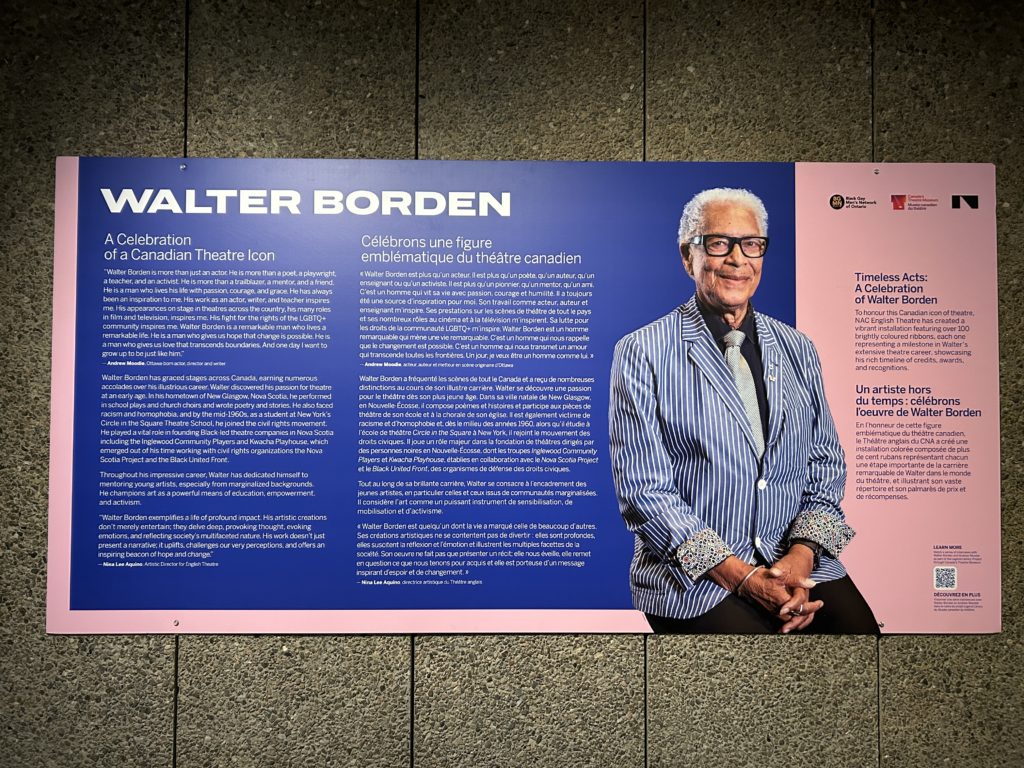
The autobiographical show exhibited Borden’s timeless love for theatre and the immense experience and elegance this play has graced the stage with since 1986.

